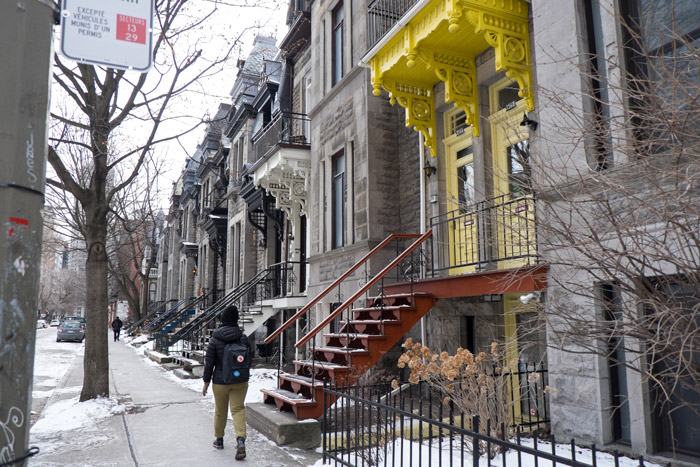The Students’ Society of McGill University (SSMU) Affordable Student Housing Committee hosted a presentation on Jan. 12 called “How to not get screwed over by your landlord.” Student speakers Julianna Duholke, 3L Law, Alex Apostolidis, U3 BFA, and Andrew Faber, second-year M.U.P., called on their peers to know their rights as tenants and to combat gentrification in student-dense areas in Montreal.
Julianna Duholke, director of community services at the Legal Information Clinic at McGill, brought attention to the common practice of landlords hiking rent prices and explained that such increases are only lawful under specific circumstances.
“Demand [due to the COVID-19 pandemic, for example] is not really a legitimate reason [to raise the rent],” Duholke said. “It has to be based on things like actual increase in expenses, like property taxes or huge renovation costs.”
Duholke noted that while landlords often frame the notice of a rent increase as a non-negotiable issue for their tenants, students still have a right to negotiate their rent.
“A lot of people think that they automatically have to accept a rent increase, but you absolutely don’t,” Duholke said. “So, if your landlord is trying to increase your rent, you can reject that, in which case the landlord can either accept your rejection, or then they themselves would be the one who would have to go to the administrative tribunal to get them to fix the rent [….] Then it’ll be for the tribunal to decide whether the increase was legitimate or not.”
Apostolidis, Housing and Job Legal Information Assistant at the Concordia Student Union, believes that the refusal to accept a landlord’s rent increase is a crucial part of student engagement in anti-gentrification.
“I think it’s important to recognize that a lot of people need affordable housing, not just students,” Apostolidis said. “Although it’s not our responsibility as students to control the whole housing market, there are certain things that we can do to lessen the impact of gentrification on certain neighborhoods.”
One of the ways students can reduce their effect on gentrification, Apostolidis suggested, is to choose student housing.
“A benefit of student housing in gentrification terms is you are not going to be displacing families or other non-students that need affordable housing, because you are going to live in housing that’s dedicated for [students],” Apostolidis said. “The downside about student housing is frankly [that] a lot of the time [it] is way overpriced and can be very loud or other things that you don’t want to have to deal with as a student.”
To help remedy unaffordable student housing, Faber, a member of the SSMU Affordable Student Housing Committee, explained that the committee has a plan underway to provide housing close to campus managed by students, for students, in the coming years. In collaboration with UTILE, a non-profit organization that will aid in building design and fundraising, the project could be finished construction as soon as 2023.
“[The rent is] going to be 15-30 per cent below market value,” Faber said. “It’s not a for-profit model [….] It’s a cooperative model, so it only goes up with inflation and repairs and things of that nature.”
All of the speakers at the event found a common hope in students’ ability to generate change within their communities. Apostolidis urged students especially to make informed decisions when moving into a new apartment to combat gentrification and inflation.
“Get informed about the city you live in and the history of your borough,” Apostolidis said. “Deny your rental increase [….] Transfer your lease whenever possible. Live in student housing if possible [and] if not, a student neighbourhood. [Be] cautious of where you’re going to be moving into and who your neighbours are [….] Always inform people around you about your rights, because why wouldn’t you do that?”








